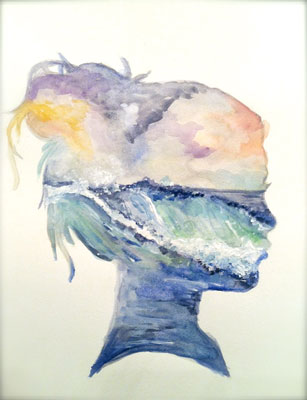All Nonfiction
- Bullying
- Books
- Academic
- Author Interviews
- Celebrity interviews
- College Articles
- College Essays
- Educator of the Year
- Heroes
- Interviews
- Memoir
- Personal Experience
- Sports
- Travel & Culture
All Opinions
- Bullying
- Current Events / Politics
- Discrimination
- Drugs / Alcohol / Smoking
- Entertainment / Celebrities
- Environment
- Love / Relationships
- Movies / Music / TV
- Pop Culture / Trends
- School / College
- Social Issues / Civics
- Spirituality / Religion
- Sports / Hobbies
All Hot Topics
- Bullying
- Community Service
- Environment
- Health
- Letters to the Editor
- Pride & Prejudice
- What Matters
- Back
Summer Guide
- Program Links
- Program Reviews
- Back
College Guide
- College Links
- College Reviews
- College Essays
- College Articles
- Back
Why Is Dystopian Literature Such a Rise in Popularity Today?
The dystopian literature is experiencing such a rise in popularity today for many different reasons. A dystopian literature is a futuristic world in which everything is imperfect, everything goes terribly wrong, and shows us what could possibly happen in the near future. In the stories “Harrison Bergeron”, “The Veldt”, and “Ten with a Flag” we learned many different types of dystopian examples. Some of the following include, knowing what it would be like living in a “perfect” world, having your thoughts and freedoms restricted, and having a very futuristic world.
In the story “Harrison Bergeron” we learned that the dystopian society is an allusion of a “perfect” world and gives us a view of what it would be like to live in a “perfect” world. “George, while his intelligence was way above normal, had a little mental handicap radio in his ear. He was required by law to wear it at all times. It was tuned to a government transmitter. Every twenty seconds or so, the transmitter would send out some sharp noise to keep people like George from taking unfair advantage of their brains.” The government wants to override how much information each of the citizens receive. They want everyone to be equal to one another so they make people who have a higher intelligence level wear a handicap ear piece to make them average. What this earpiece does it is restricts certain information so they can maintain at the average intelligence level.
In “Ten with a Flag” we were shown that citizens must conform to expectations and that the literature is very restricted and doesn't let you have rights, which is different than what we are use to. “‘No one ever said we’d let you go through with it, though. This flag is an option, not a right. Arrest him.’”The government is controlling this situation. Even though Johnnie and his wife have the decision of keeping or aborting the baby there is going to be consequence either way. Johnnie chose to abort the baby so the consequence of doing that was being arrested. Which is what Mr. White is saying, Johnnie had an option to choose whether or not they wanted to go through with having the baby or having the baby aborted, he didn’t have a right. “It’s a credit to the two citizens ‘As such, the state has raised both your rating to eight, effective immediately. Congratulation’”. They are ranked in a number system. The lower the number that the government rates you the more work you have to do. If your number was higher you wouldn't have as much work to do as the people with low numbers. So people who are ranked a six have to do a little more work than people who are ranked an eight.
In the last story, “The Veldt” we were educated on how each of the citizens live in a dehumanized state. A dystopian literature is very futuristic. “The room was silent and empty. The walls were white and two dimensional. Now, as George and Lydia Hadley stood in the center of the room, the walls made a quiet noise and seemed to fall away into the distance. Soon an African veldt appeared, in three dimensions, on all sides, in color. It looked real to the smallest stone and bit of yellow summer grass. The ceiling above them became a deep sky with a hot yellow sun.” Their environment in a room is controlled by some type of technology. “That sounds terrible! Would I have to tie my own shoes instead of letting the machine do it? And brush my own teeth and comb my hair and give myself a bath?” They are living in a society where all the technology is doing the work and no citizens are doing any work.
These three writings all tell different stories but within each story they all come to the same conclusion in which they are dystopian literatures. In “Harrison Bergeron” we learned that the dystopian society is an allusion of a “perfect” world. “Ten with a Flag” teaches us that citizens must conform to expectations. “The Veldt” educated us on how each of the citizens lives in a dehumanized state.

Similar Articles
JOIN THE DISCUSSION
This article has 0 comments.